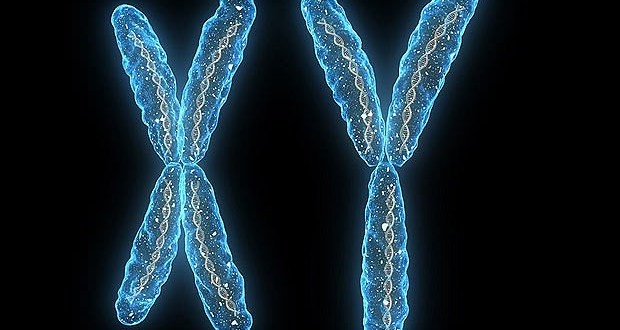The Y chromosome, which determines whether a mammal will be a male has been found being stable for the past 25 million years, according to a new research published in the journal Nature.
Compared to the larger X chromosome, the Y pales both in size and the amount of genes it contains.In the last 1950s, many geneticists predicted that the Y chromosome probably would be vanishing in 10 millions years for “very few expressed genes actually resided on the Y.” Such an idea led people wonder wether there would be males any more.
By studying samples from several male tissues – in particular testicles – from different species, the researchers recovered the Y chromosome genes from the three major mammalian lineages: placentals (which include humans, apes, rodents and elephants), marsupials (such as opossums and kangaroos) and monotremes (egg-laying mammals, such as the platypus and the echidna, a kind of Australian porcupine). In total, the researchers worked with samples from 15 different mammals, representing these three lineages, as well as the chicken, which they included for comparison.
Instead of sequencing all Y chromosomes, which would have been a colossal task, according to Diego Cortez, researcher at CIG and SIB and main author of the study, the scientists opted for a shortcut. By comparing genetic sequences from male and female tissues, they eliminated all sequences common to both sexes in order to keep only those sequences corresponding to the Y chromosome. By doing so, they established the largest gene atlas of this “male” chromosome to date.
This study required more than 29,500 computing hours! A gigantic task, which could not have been performed without important technical means: the high-throughput DNA sequencers of the genomics platform at the Center for Integrative Genomics, for the generation of the genetic sequences, and the calculation means of Vital-IT, SIB’s high-performance computing centre, for the biological analyses.
Agencies/Canadajournal
 Canada Journal – News of the World Articles and videos to bring you the biggest Canadian news stories from across the country every day
Canada Journal – News of the World Articles and videos to bring you the biggest Canadian news stories from across the country every day



